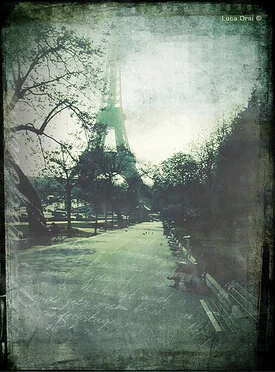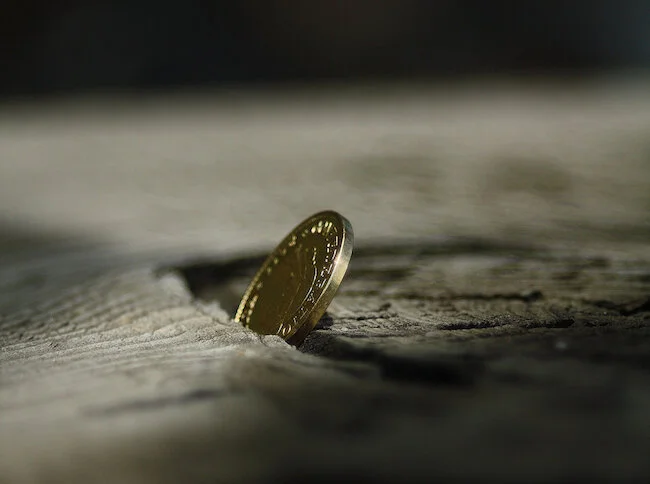Now Playing in Paris
by Dorty Nowak
Several years ago my husband and I moved to Paris. Although I was an avid student of French culture and cuisine, my knowledge of the French language was minimal. Freshman year in college I dropped out of French 101 because partying was much more fun than memorizing vocabulary, a decision I’ve regretted ever since. Over the years I had accumulated several “French for Travelers” texts, some Berlitz tapes, and enough rudimentary vocabulary to get by on my occasional vacations in France.
Consequently, I arrived in Paris with the linguistic skills of an eight year old. During the next two years, I attended classes at the prestigious Alliance Française de Paris. Although a diligent student this time around, I was at least thirty years older than most of the students in the class, and proof positive that older brains are slower to learn new languages. I filled a bookshelf with grammar and vocabulary workbooks in my quest for fluency, and another with novels in French aimed at the pre-teen market. I also acquired a very active inner critic.
My critic was right there with me every time I spoke. I felt his grim presence from the time I opened my eyes in the morning until I closed them at night.
“No, no, you idiot,” he would shout in my ear. “You should have used the passé compose, not the present! Why can’t you remember the word for ‘idiot’? How many times do I have to tell you to use “vous” instead of “tu” when you answer me?”
As a consequence of this constant barrage, I became almost tongue-tied. There were long painful pauses between my words as I frantically ran their “rightness” by my critic.
According to one of my teachers, to become fluent I needed to develop a “French brain.”
“How will I know when I have one?” I asked. To which she responded, “When you dream in French.”
I knew then I was doomed because the daily struggle with my critic left me so exhausted by evening that I would fall each night into a dreamless sleep.
Even my tolerant French friends were beginning to lose patience with me. Who knows where my slide into linguistic aphasia would have ended, had I not by chance come across a flyer proclaiming in bold letters, “Learn French Through The Theatre – Results Guaranteed.” I lost no time in calling the teacher, Martine, who didn’t promise to make me the next Audrey Tautou, but did say she could make a francophone out of almost anyone. I was sold.
The first few weeks of class were terrifying. Our motley troupe included Maria from Spain, Ho from China, Sophia and Roberto from Italy and Yukiko from Japan. French was our only shared language. Martine made us move constantly as we talked. “Loose body, loose tongue,” she would say. She hurled phrases at us and we would have to toss them back. There was no time to think in this verbal game; all our responses had to be reflex. Martine wasn’t an easy coach. If we dropped the linguistic ball - mispronounced a single word, or got a verb tense wrong, she would make us repeat the phrase until we got it right. From these exercises we moved on to improvisation. Martine would give a group of two or three of us a situation, and five minutes to prepare. The scenes we concocted were so ridiculous that for once even my inner critic was speechless.
Finally we graduated to real plays. We were all excited when Martine handed out the scripts for our first production, a French farce by Georges Feydeau called “Le Dindon,” which means “the dupe.”
I suspected Martine was having a little joke on us, but no matter. Memorizing my lines was a challenge, since all I’d memorized in years were shopping lists. However, by performance time, I was ready. On cue, I walked out onto our little makeshift stage, and opened my mouth. The words flowed. For the first time, I felt like I was speaking French, and I was thrilled.
Moliere and Sartre followed Feydeau. With each new part I learned, an amazing transformation took place. I no longer needed to translate my words from French to English and back into French. I simply learned my lines and spoke them. I finally understood that to become fluent, I first needed to experience what fluency felt like. I’m not claiming that my French is perfect, or that I’ll ever lose my American accent. I still am greeted with quizzical stares or hoots of laughter from time to time. And while I’ll never win a Clio or an Oscar, at least now my inner critic, and my friends, are giving me rave reviews.
Dorty Nowak is a writer and artist living in Paris and Berkeley who writes frequently about the challenges and delights of multi-cultural living. A former educator and insurance executive, she helped found the Oakland School for the Arts. She is currently developing a collaborative project, ”Where Do I Belong,” involving artists and poets from Europe, Australia and the U.S.
photo via Flickr.com CCL by Luca Orsi



